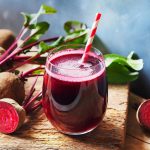
The societal stress and stigma of being LGBTQ+ can increase a person’s risk of mental health problems, a new study suggests. People in sexual and gender minorities are more likely than heterosexuals to suffer from problems like anxiety, depression, PTSD, bipolar disorder, ADHD, eating disorders and obsessive-compulsive disorder, researchers reported recently in JAMA Network Open. But they emphasized that these mental health problems are not caused by these folks’ sexual and gender identity, but “reflect the stigma and minority stress experienced by these individuals.” Factors such as “limited legal protections, exposure to violence, lack of access to gender-affirming treatments, and weaker social support systems” affect LGBTQ+ people physically and mentally, “heightening the risk of mental health issues over time,” a team led by senior author Marvin Langston concluded. Langston is an assistant professor of epidemiology and population health at Stanford University. For the study, researchers analyzed responses from nearly 270,000 people participating in the All of Us Research Program, a national project designed to explore mental health disparities. Of those participants, more than 22,000 self-identified as a member of a sexual or gender minority. The study compared people’s risk for 10 mental health conditions: anxiety, attention deficit hyperactive disorder (ADHD), autism, bipolar, eating disorder, depression, obsessive-compulsive disorder (OCD), personality disorder, post-traumatic stress disorder (PTSD) and schizophrenia. Results show that people in sexual or gender minorities… read on > read on >


















